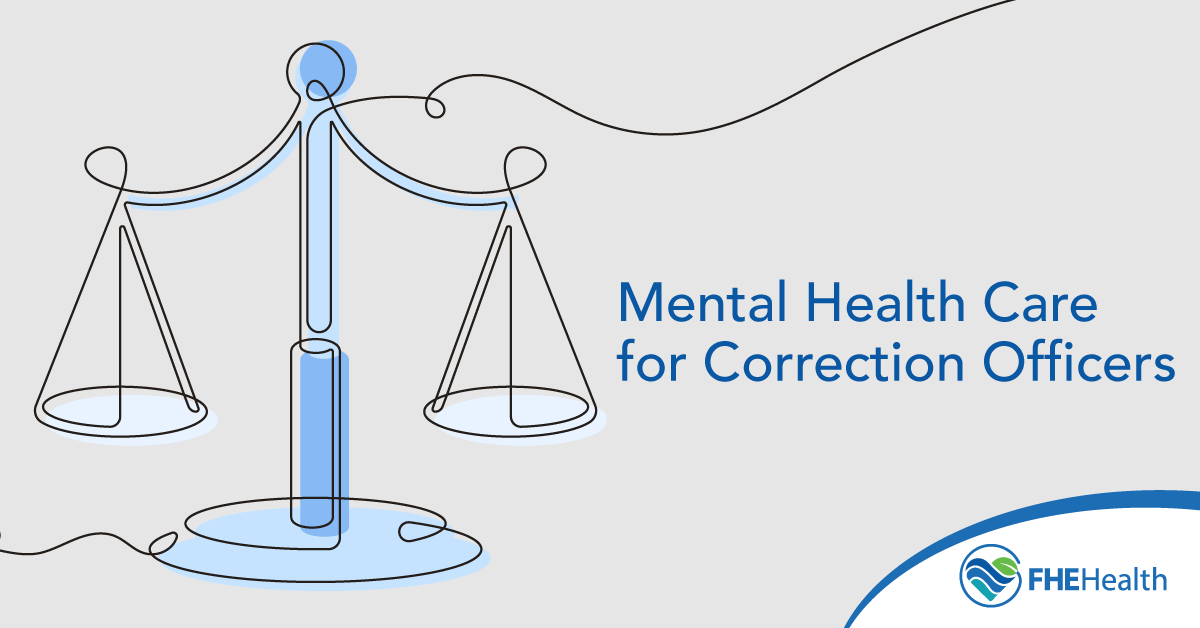
The high-stress demands of working as a correction officer can jeopardize both physical and mental health. Long work shifts, dangerous conditions, and the constant need for vigilance can create enormous stress. Working in any one of the nation’s prisons requires that corrections officers be constantly vigilant about safety–the safety of inmates, the safety of other officers, and their own personal safety. Meanwhile, keeping the nation’s prisons safe is even more challenging when officers themselves are at risk of developing mental health issues….
Mental Health Challenges in Correctional Officers: Understanding the Strain
A correctional officer works in an environment that could be considered unsafe, even though it is their job to keep everyone in the facility safe and secure. They work with inmates who have committed all manner of crime, often violent. A single forgotten procedure could result in a violent catastrophe, and that possibility keeps many officers on high alert, always vigilant, and always operating in a high-stress situation.
The strain of working under stressful conditions can affect anyone’s job performance and mental health. A person who constantly faces stress is at risk for developing mental health symptoms such as anxiety, depression, or panic. An officer who may have been involved in a dangerous situation where they were hurt or saw someone else get injured or killed is at higher risk of developing post-traumatic stress disorder (PTSD).
Like police officers and military personnel, corrections officers are exposed to stressful situations that can impact them in negative ways. At-risk occupations can leave workers vulnerable to developing a mental health disorder. For corrections officers, the strain can leave them feeling burnt out, depressed, and on edge.
Behind the Badge: Exploring the Mental Health of Correction Officers
Correction officers play a crucial role in the country’s justice system, helping to keep prisons operating safely and securely. But corrections officers, collectively as an occupational group, are struggling. Reports of increasing burnout rates, absenteeism, and job turnover highlight some of the fallout of this difficult work.
Correctional officers routinely face a threat of violence requiring them to be on guard at all times. They can’t really have an “off day.” because it puts lives at risk. They always have to perform at their best, and even then there isn’t a guarantee that their life won’t be threatened. This level of danger takes an emotional and even physical toll on employees in this profession.
Added to the strain are few social interactions, long hours, and their own personal problems which anyone might contend with from time to time. Because of these factors, correctional officers may experience chronic stress. This type of stress can leave them vulnerable to mental health issues like depression, panic disorder, and substance abuse.
Coping with the Daily Stress: Supporting the Mental Health of Correctional Officers
Stress management is important for anyone, but an individual with a high-stress job needs a plan for coping with their stress in healthy ways. Partnering with a counselor or therapist is an ideal way for officers to get informed help and create an individualized stress management plan.
While some prison systems are proactive about supporting the mental health care needs of their officers, others are not. Often, it’s up to the individual to find effective ways to manage their mental health on their own. Meeting with a therapist is a helpful way to get one-on-one support for ongoing problems and stress. Some officers may also benefit from attending support groups, especially if they have a mental health condition like depression or a substance use disorder like alcohol addiction.
The Unseen Toll: Addressing the Mental Health Needs in the Correctional System
The high turnover rate of correctional facility officers spotlights the real problems that are associated with the occupation. In order to entice people to stay in the job, it’s important to recognize and address the mental health needs of officers. For instance, reducing shifts may prevent burnout. Onsite mental health support may help officers cope with any mental health symptoms they’re facing. Encouraging officers to participate in therapy or mental health wellness programs may help reduce turnover rate and improve job gratification.
Mental Resilience: Promoting Wellbeing in the Lives of Correction Officers
Today, correction officers and others in high-stress fields have many options when it comes to addressing a mental health need, building stress resilience, or improving wellbeing and quality of life. Many with PTSD and other trauma-related mental health issues have found help from a combination of medication and therapy. Some providers like FHE Health may offer a specialized program of treatment for correction officers, including evidence-based interventions that target officers’ unique mental health needs. Some examples might be peer support groups, trauma therapies like EMDR, and neuroscience-based treatments that retrain the brain for optimal health.
Mental Health in Law Enforcement: A Closer Look at Correctional Officers’ Struggles
If you are a correctional officer, you may be at risk for developing a mental health problem. If you experience mental health symptoms like depression for more than two weeks, contact your doctor immediately. If you self-medicate with alcohol, marijuana, or other substances, you may have a substance use disorder.
Corrections officers face considerable stress in their everyday lives. The accumulation over time can become too much for anyone. At FHE Health, we’re here for you. Contact us anytime.






